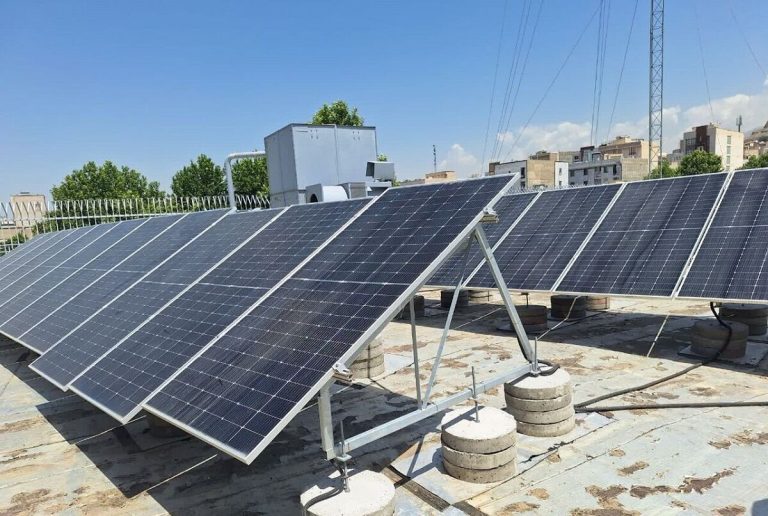Buildings with more than 4 floors are required to use solar panels.
On Saturday, Mohsen Zabihi spoke about the actions taken to encourage building owners to use solar energy. He stated that according to the memorandum of understanding between Tavanir and the Building Engineering System Organization signed at the end of August this year, the use of solar panels in new buildings will be mandatory.
The Deputy Coordinator of Distribution of the Electricity Generation, Transmission, and Distribution Company (Tavanir) said: Buildings that have more than four floors or have a total floor area of more than 1000 square meters are required to use solar panels to obtain construction permits.
According to Tavanir, Mohsen Zabihi said on Saturday regarding the actions taken to encourage building owners to use solar energy: According to the memorandum of understanding between Tavanir and the Building Engineering System Organization, which was signed at the end of August this year, the use of solar panels in new buildings will be mandatory.
He added: Based on this, issuing construction permits for buildings with more than four floors or buildings with a total floor area of more than 1000 square meters will be conditional on the use of solar panels.
Zabihi emphasized that this memorandum was signed to promote the use of renewable energy while preserving the environment and enhancing non-operational defense levels, noting that the subject of this memorandum has recently been communicated to Tavanir by the top ministry official, and the CEO of Tavanir has also communicated it to all distribution companies.
He continued: In this memorandum, it is anticipated that a regulation will be drafted by the Building Engineering System Organization for the implementation method; the Building Engineering System Organization has done this and communicated it to the Building Engineering System Organizations across the country.
The Deputy Coordinator of Distribution of Tavanir stated that the capacity of solar systems in each building will be proportional to the rooftop space, saying: In addition to rooftops, it is also possible to install solar systems in the courtyards and parking lots of these buildings.
He noted: If those who apply for a building permit do not do this, in addition to the Building Engineering System Organization not issuing the necessary approvals, distribution companies will also not provide electricity connections to these applicants.
Zabihi added: Distribution companies, on behalf of the Renewable Energy and Energy Efficiency Organization (Satba), under Article 61 of the Energy Consumption Reform Law, will sign guaranteed electricity purchase contracts with building owners after the construction of solar power plants for a period of 20 years.
According to him, rooftop solar power plants are also connected to the national power grid, and the building subscribers will also receive electricity from the grid separately.
The Deputy Coordinator of Distribution of Tavanir continued: In the current situation, with the disconnection of the national power grid, due to safety and network protection issues, the power plant is also disconnected from the grid. Currently, with the introduction of hybrid inverters to the market, using this model of inverters makes it possible to use the energy produced by these systems to provide electricity for part of the building’s emergency consumption, elevator, and public lighting.
The capacity of renewable energy in the country has reached about 1520 megawatts and it is planned to increase this capacity to 1800 megawatts by the end of this year.

